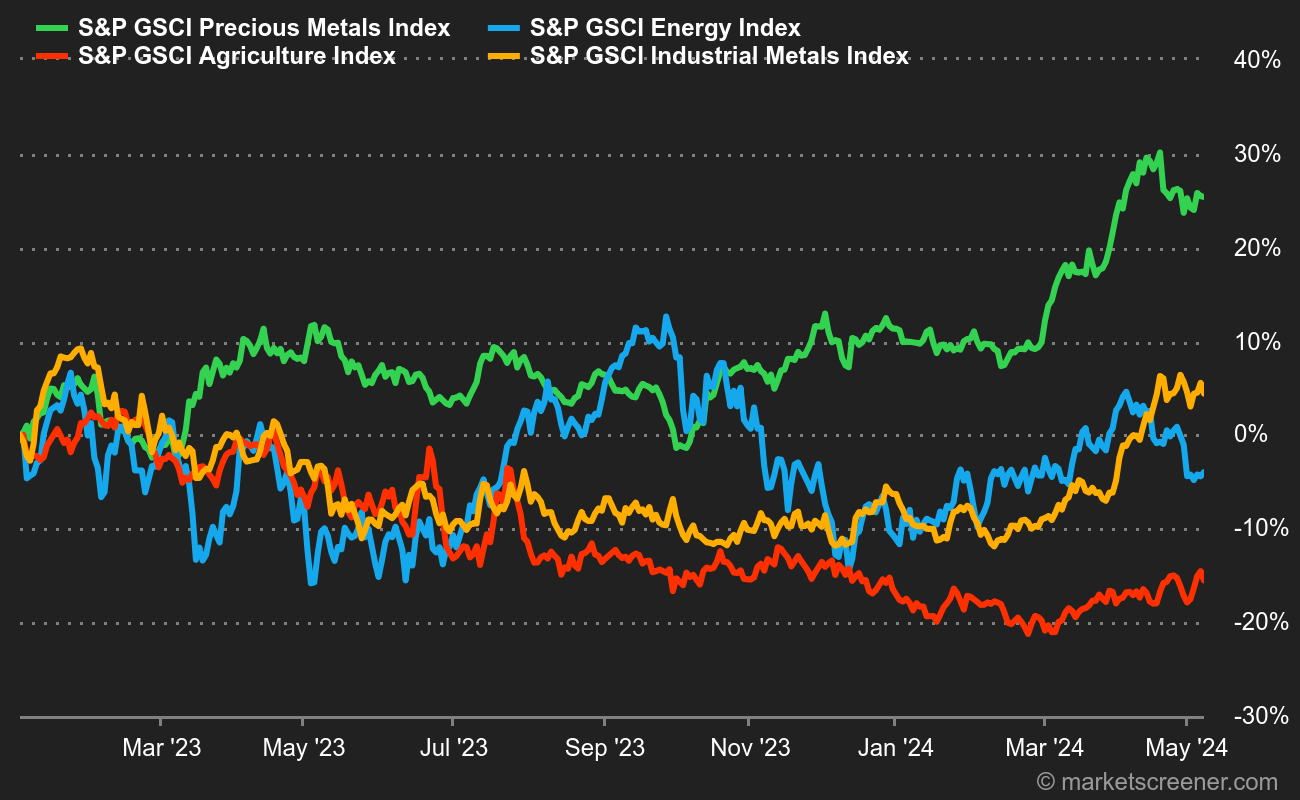Energy: Oil rises for the fourth week in a row, bringing Brent back close to USD 90 a barrel. Oil is up an impressive 16% since January 1, a performance which could complicate the task of central bankers working to curb inflation. OPEC+ held its Joint Ministerial Monitoring Committee (JMMC) meeting this week and, unsurprisingly, the enlarged organization did not alter its production quotas, maintaining its grip on global supply. At the same time, Saudi Arabia raised its official selling prices for Asian buyers. Finally, geopolitical tensions remain high in the Middle East following Israeli strikes in Syria targeting Iranian interests.
Metals: The price of copper reached a new annual high this week at USD 9256 per tonne. China intends to reduce its copper production in order to eliminate the surplus which is penalizing its smelters. The rest of the compartment remains well oriented in London: aluminum rises to USD 2400 , zinc advances to USD 2550 and lead recovers to USD 2040. Gold also set a record, but an all-time record, as it broke the USD 2300 barrier for the first time. The price of gold is extremely sensitive to the direction of the Fed's monetary policy. In this respect, the slightest hint that a rate cut is on the horizon in June is a major boost for gold.
Agricultural products: After cocoa (which remains high), it's coffee's turn to make news. Its price has jumped 10% in just 5 days. As with cocoa, concerns are mounting over supply, as lack of rainfall and rising temperatures are threatening harvests in South-East Asia.


 By
By 
















